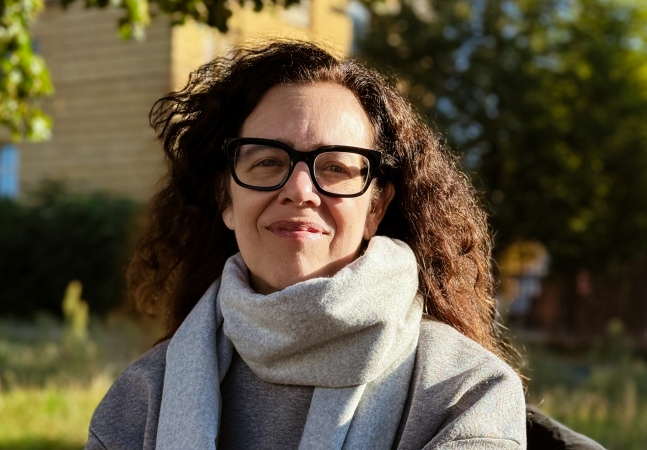
Rita Velloso works on developing research methodologies applied to urban issues.
Photo credits: Zukunftskolleg – ZUKO
Professor Rita Velloso, from the UFMG School of Architecture and coordinator of the Cosmópolis research group, affiliated with the IEAT, began a stay at the Institute for Advanced Studies at the University of Konstanz (Zukunftskolleg – ZUKO) in Germany in September as a Senior Fellow.
With the project “Building transdisciplinary research on Brazilian urban studies,” Velloso seeks to consolidate an academic and institutional foundation for scientific cooperation between the IEAT and ZUKO.
During her stay in Germany, she will be affiliated with the Department of History and Sociology at the University of Konstanz, in direct collaboration with Gruia Bădescu, a researcher associated with ZUKO. During this period, she intends to promote dialogue on transdisciplinarity in urban studies and its historical, cultural, material, and socio-spatial implications in Brazilian cities, as well as to deepen the partnership between Cosmópolis and Bădescu’s research.
“I believe that my time at ZUKO can generate new opportunities for collaboration between groups at the University of Konstanz and researchers at UFMG. Two possible avenues are the Cluster of Excellence ‘The Politics of Inequality,’ hosted at ZUKO, and the Latin American Forum of Konstanz,” Rita emphasizes.
These collaborations, according to the researcher, should contribute to the refinement of the issues investigated in Cosmópolis, situating them in a specific urban context—from a global, north-south approach to a concrete perspective, anchored in Brazilian urban dynamics and the Belo Horizonte metropolitan region.
“Based on a multidisciplinary perspective developed in the collective practice of Cosmópolis, I intend to deepen the foundations of urban theory associated with the concepts of socio-spatial inclusion (power), ecology (nature), and crisis. This conceptual reflection will serve as a basis for discussing applied, critical, and transdisciplinary research methodologies focused on urban issues,” explains the professor.